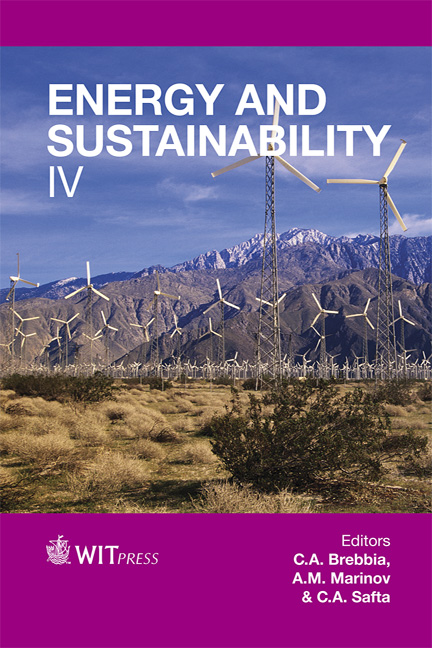Effects Of MSW Selective Collection On Waste-to-energy Strategies
Price
Free (open access)
Transaction
Volume
176
Pages
9
Page Range
3 - 13
Published
2013
Size
449 kb
Paper DOI
10.2495/ESUS130181
Copyright
WIT Press
Author(s)
E. C. Rada
Abstract
This paper analyses the effects of the evolution of the selective collection of municipal solid waste on the local strategies for their energy valorization, referring to a case study where high efficiencies of source separation have been reached thanks to a two-decade effort. Four years were characterized as representative of significant moment in the local waste management history. The case study area concerns a province in the North of Italy where particular attention has been put to the organization of selective collection. The economy of the area is typical of a high-income country for all the analyzed period. As expected, these characteristics gave a good steadiness to the composition of municipal solid waste, but the variability of selective collection (which increased its efficiency year by year) affected year by year the characteristics of the residual municipal solid waste. The high efficiency of selective collection that the latest data pointed out causes an indirect modification of the residual municipal solid waste that today is similar to a solid recovered fuel. In spite of its high Lower Heating Value, the energy exploitable, compared to the one of the municipal solid waste generated, is significantly reduced as an effect of source separation (of fractions with significant energy content). Moreover, the reduced power (GJ per year) associated to the present residual municipal solid waste decreases the scale of the provincial plant to a value that must be carefully analyzed in terms of economic viability. From another point of view, the alteration of the residual municipal solid waste characteristics makes it similar to a solid recovered fuel even without pre-treatments. The option for its cocombustion in existing industrial plants (cement factories, thermal power plants, etc.) should be analyzed comparatively. Keywords: MSW, selective collection, SRF, waste-to-energy.
Keywords
Keywords: MSW, selective collection, SRF, waste-to-energy.





